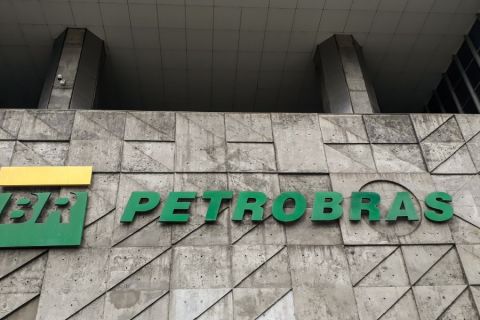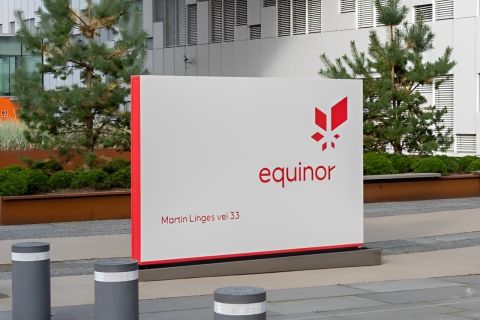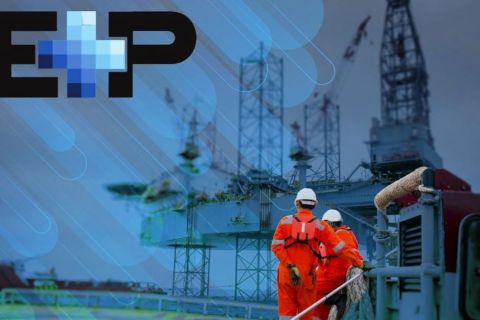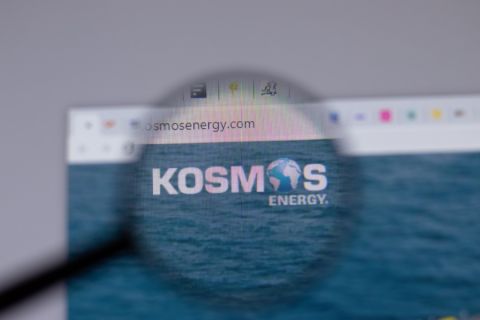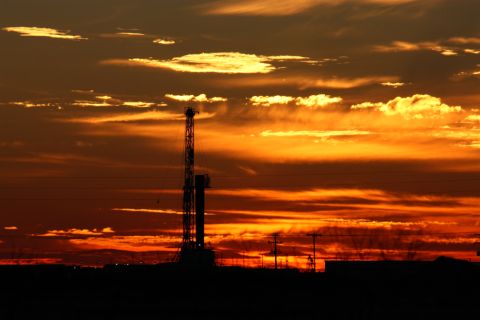Over the last few years, as the price of oil continued to climb and reached US $70 a barrel, petroleum companies began to re-evaluate world markets and their exploration/upstream
 |
|
| Soft security helps rebuild infrastructure in Iraq and gains allies for oil and gas operators among local residents. (Picture courtesy of Garda/Vance) |
Yet, while more companies are moving ahead, the determination of terrorists/insurgents in “hot spots” to disrupt activities remains firmly entrenched. Also, just as companies are re-evaluating their risks and markets, groups with anti-foreign sentiments in regions now seeing corporate interest are undoubtedly considering disruptive tactics that have successfully discouraged oil development elsewhere.
Terrorists recognize a number of benefits from attacking and impeding a region’s petroleum capacity. The economy of an emerging democracy or the maturing of existing government can be seriously hampered. It sends a message to the local population and outside world that a government cannot protect its people or provide a safe environment for external investment. Terrorists also gain financial benefits if they can destabilize the security of a region. For instance, it gives them the opportunity to extort protection money from both local entities and multinational organizations such as oil companies. These activities not only fund terrorist groups, the individuals who carry them out are often simply soldiers in organized crime “families,” directly benefiting financially or selling their services to those with a political agenda.
Despite the very serious challenges that exist, a new emphasis on security and how companies leverage it helps create inroads in high-risk markets.
Breaking new ground
The single biggest error companies have made thus far when expanding into “hot spots” is adopting a colonialist approach: occupying an area, using ex-patriates to extract a resource and then leaving. Security firms using this strategy to provide protection also tend to employ strong-arm tactics — including hiring local military police forces or former generals — a method that often has the diplomacy of a sledgehammer. Time and again, this scenario has created economic chaos and disruption, angered local populations and governments, fueled corruption and, not surprisingly, spurred acts of terrorism and crimes against corporations.
With this in mind, forward-thinking security firms are placing an emphasis on a new strategy, a logical extension of what is called “soft power.” This term was coined by Harvard University’s Kennedy School of Government Professor Joseph Nye, who served as Deputy to the Undersecretary of State in the Carter Administration and Assistant Secretary of Defense for International Security Affairs in the Clinton Administration. The soft power concept refers to international relations and the ability to indirectly influence an outcome through cultural and ideological means and understanding.
Under this approach, oil companies make locals “part of the team” by employing indigenous workers; showing greater interest in improving the overall environment; and funding projects such as schools, healthcare and public works. However, there’s more to this new security model than taking a holistic approach to third-world development.
When considering high-risk markets, companies need to put security higher on the agenda. The reasons for this is that a good security team has done its due diligence about a particular market; has deep intelligence on the region by having people on the ground; and is fully aware of tribal, cultural and geo-political issues. Basically, team members know the “good guys” from the “bad guys,” and that can greatly facilitate progress and ultimately success in a high-risk market.
In the past, a construction company would often be hired to build infrastructure and tasked with identifying subcontractors, among them security firms. In high-risk markets, however, progressive security firms should be the umbrella organization entrusted with performing this function because they possess and apply unique intelligence about a region with its many variables and nuances. Today, such security firms are being used to hire safe, reliable vendors; track the progress of construction projects; oversee project funds and employee payroll; prevent theft; conduct political and social relations programs; and more. They simply have the local knowledge and contacts most likely to provide the best possible outcome.
Ironically, this is not an entirely new concept. Garda/Vance has long taken on such a role in regions hit by natural disasters (Hurricane Katrina) as well as those impacted by factors such organized crime (construction sites in North Ireland). Still, the single greatest example of how this model has been comprehensively developed and deployed in a volatile region is northern Iraq.
Fertile ground
The security company has been working with oil companies in the Kurdish region of northern Iraq for several years. As is the nature of the industry, wildcatters accustomed to high risks and dangerous working conditions gradually gave way to mid-tier players as the region became more stable.
Watching these developments carefully, major oil companies were moving cautiously and poised to be more aggressive with development plans. Turkey, responsible for the vast amount of oil leaving Iraq through this region via trucking routes, has historically refused to acknowledge Kurdish rights in any way. In fact, while both groups use a common border crossing, each refers to it by a different name. The new Hydrocarbon Law now being hammered out between the Kurds and Iraq’s central government could soon formalize oil investor rights as well as other issues regarding control of the region, autonomy of provinces and distribution of oil revenue.
Major oil companies in particular have been reluctant to enter the region during this period of uncertainty, fearing a backlash from Iraq’s central government for cooperating with the Kurds. There is also the concern that a central Iraqi government could seize and nationalize company assets, including costly new infrastructure developments. These and many other variables could inflame this region, including, of course, local and “imported” terrorist and organized crime activities.
Yet currently, the security organization oversees security operations that have grown to employ more than 800 Kurds.
Make no mistake: physical protection of a company’s personnel and assets is and always will be a foremost concern. However, the soft power security model employed by the company in areas beyond the scope of traditional security services has achieved great success. This has entailed organizing “life support,” including supplying necessary food, water and housing for these local employees and their families and communities. Transportation and medical care have also been arranged, safe vendor companies identified, and project progress and finances monitored on an ongoing basis.
Security operations, having the better grasp on intelligence and issues ranging from trusted local contacts to cultural understanding, was the umbrella entity that assumed responsibility for these critical services.
Investments continue to be made in the local environment in areas from healthcare to education, winning favor with a local population already pleased with the possibility of building a self-sustaining economy that provides a reliable source of employment. To further this, the security organization, working with local government, business and tribal officials, has re-established a banking system and now pays local employees by check or direct deposit. By doing so, lending is now available for housing and businesses, supporting the local economy and bringing greater stability to the region. Equally important, by paying employees with checks, not cash, the money remains in circulation and cannot be as easily appropriated for terrorist causes and activities.
Northern Iraq remains a high-risk market, yet it also undeniably holds the potential for an extremely high level of mutual financial reward for both the local populace and the companies developing the natural resources of the region. In this it is not unlike many markets from Nigeria to Venezuela. With this type of a soft power security approach, oil companies are much more likely to gain local and government support. This simple investment in “soft power” will reap long-term value, security and stability for foreign operations, property and image in these hostile environments.
Before joining Garda/Vance, Casteel was a senior advisor to Iraq’s Ministry of Interior on non-military security issues, including setting policy and leading the creation and operation of new Iraqi police, border, immigration, customs, civil defense and fire-fighting programs.
Recommended Reading
Petrobras Sending Nearly Half of Oil Exports to China
2024-04-30 - Conflict in the Middle East has enabled Brazil’s state-owned Petrobras to change the flow of its oil exports, with China being the primary beneficiary, followed by Europe.
Equinor Says EQT Asset Swap Upgrades International Portfolio
2024-04-30 - Equinor CFO Torgrim Reitan says the company’s recent U.S. asset swap with EQT Corp. was an example of the European company “high-grading” its international E&P portfolio.
E&P Highlights: April 29, 2024
2024-04-29 - Here’s a roundup of the latest E&P headlines, including a new contract award and drilling technology.
Kosmos Energy’s RBL Increased, Maturity Date Extended
2024-04-29 - Kosmos Energy’s reserve-based lending facility’s size has been increased by about 8% to $1.35 billion from $1.25 billion, with current commitments of approximately $1.2 billion.
Barnett & Beyond: Marathon, Oxy, Peers Testing Deeper Permian Zones
2024-04-29 - Marathon Oil, Occidental, Continental Resources and others are reaching under the Permian’s popular benches for new drilling locations. Analysts think there are areas of the basin where the Permian’s deeper zones can compete for capital.

